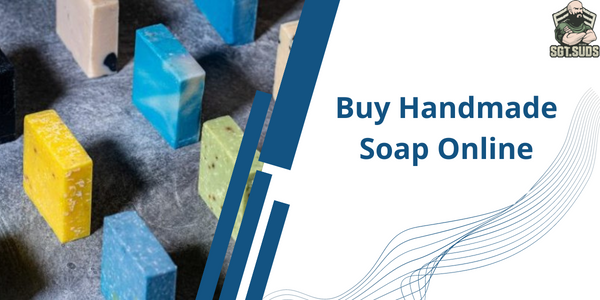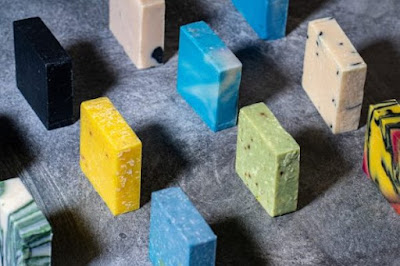Buy C4 Scrub Soap Purchase Online From Best Online Store In USA
C4 Scrub Soap Purchase Online
we are offer you best quality handmade soaps with affordable price. you can buy C4 Scrub Soap Purchase Online by my website.we are offer you best handmade products.Are you looking for a quality C4 Scrub Soap? Check out our website for a quick description of our products and what the house cleaning business is all about. We provide house cleaning services online and by phone. We also offer recommend C4 Scrub Soap for those who are looking for a reliable and quality cleaning solution. We always offer a fast and easy online purchase process. So if you're looking for a reliable and high quality house cleaning service, C4 Scrub Soap is the perfect choice for you.
There is something so ancient and alluring about Sandalwood.The depth and exotic richness of this scent have been bewitching humans since antiquity; and, once we’re told, its easy to see that it forms the base of some of the most exquisite perfumes in the world.Perhaps without knowing it, we associate this multi-faceted scent with quality and as something to be treasured.Sadly, in recent years, our desire to surround ourselves with this special smell has outstripped our desire to treasure it.
What is Natural Soap?
Ans- When we call our soap ‘natural’, what we mean is that all the ingredients we use to make it are natural. What is our definition of natural? Well a commonsense one. If it comes from or is a plant, vegetable, mineral or animal byproduct (e.g. honey or milk) then its natural. Hence our use of e.g. olive oil (from the olive fruit) and shea butter (from the shea nut) in our soaps.all our soaps are vegetarian and therefore no actual parts of animals (e.g. lard or cochineal) are present in any of our soaps.
If something is artificially manipulated in a lab (ie compounds are put together in ways that don’t occur in this way in nature), then this won’t make it into our soaps.These sorts of compounds are often referred to as ‘nature-identical’ ingredients and cover so-called ‘natural’ colourants like micas, or ‘natural’ fragrance oils.
Q- what is the benefits of handmade soaps?
Ans-Many ‘natural’ soaps contain these ingredients, Ours do not. If it hasn’t been extracted directly from the plant (or isn’t still a plant – e.g. seaweed or carrot powder), then it doesn’t make it into our soaps.I eat olive oil and I can tell you, olive oil is definitely not soap!olivesYes indeed.In our daily lives, we are used to encountering (and eating!) all sorts of oils; olive oil being a common one.
Q- How is it then that this liquid I eat on my salad is now solid and I can wash with it? Confusing, right?
Ans-As the majority of us aren’t trained chemists, this can be a hard one to get your head around.In order for liquid olive oil to become solid and, importantly, something we can wash with, then it needs to undergo a change known as saponification.Saponification is the process by which oils (or fats and butters) become soap.
Q-How do you saponify olive oil, well you need to use an alkali or ‘lye’Do we use lye to make our soaps?
Ans-Yes we do, otherwise the olive oil we sent you in the post wouldn’t clean you. It would just be olive oil.In our case, it would also still be liquid. (Not very helpful – and pretty messy for the postman – given that our soaps are packaged in non-water-tight biodegradable sleeves as opposed to bottles!).BUT HERE’S THE IMPORTANT PART – There is no lye in our soap bars.
Q-Say what?
Ans-Have a look at our ingredients.As I’m sure you’ve noticed, we, like every other cosmetics company that’s doing things right, list our ingredients in what looks like weird Latin.(I know, we don’t think it looks very friendly either, that’s why we also offer a plain english version on our website and packaging).
Q-Why do we do this and what has this got to do with lye?
Ans-No lye in our formal ingredient listing = no lye in our soap barsCutting natural soap barsBy law we have to list all the ingredients our soap contains in INCI format (International Nomenclature of Cosmetic Ingredients), so that they can be understood the world over.If there were lye in our soap and we didn’t list it in our ingredients, then we would be breaking the law.So no lye in our ingredient listing means no lye in our soaps.‘Lye’, or an alkali, IS used to saponify our olive and coconut oils (make them into soap), but none remains in our final bars.
-This is because our formulas are very carefully calculated, with our chemist, to ensure this.
1-I don’t speak INCI. Are you SURE the lye really doesn’t appear in your ingredient listing?
2-Good question budding chemist! The fact that lye is used to make our soap is indeed reflected in our ingredient listing.
3-So, in short, Olive Oil (INCI Olea Europea), an acid, is made into soap, or ‘saponified’, by adding an alkali (lye), or ‘base’, to it.
4-The alkali we use is called Sodium Hydroxide and therefore what is produced is the salt of olive oil (Sodium Olivate, or olive oil soap) plus glycerin.
Cool hey! As I’m sure you’ve already worked out, the ‘Sodium Cocoate’ in our ingredient listing is indeed the salt (or soap) of Coconut Nucifera – coconut oil to you and me.And the glycerin? Well herein lies the rub. The soap making process naturally produces lovely moisturising glycerin. We leave this exactly where it belongs – in your soap bars to nourish your skin. This is one of the reasons our soaps feel so great to use.Oh, what do many companies do? They remove the glycerin from their bars. Why? Because its valuable and can be sold on to other parts of the cosmetics industry.
Q-Is there any soap that does grow on a tree/is naturally occurring?
Ans-Horse ChestnutYes, in a way.While no actual hard soap, or bottled liquid soap, grows on trees; nature does produce a number of plants that contain saponins.While not ‘soap’, these plant-containing saponins can be used to wash with and to wash clothes.For example, when pounded, the yucca root produces a soap-like substance that can be used for washing, as do horse chestnut seeds. Traditionally, the latter was used to clean cloth and even delicate tapestries in the UK.
2-Anyone who has cooked lentils will also have noticed the bubbles they produce when you rinse them. Again, this is to do with their natural saponins. In India, lentil-water is still used by some today to wash their hair.So naturally-occurring washing options are out there, but personally I’d take the convenience of a well-formulated, 100% biodegradable, natural soap bar over taking a pestle and mortar + yucca root into the bath.Apart from washing with, there are numerous uses for soap around the house.
3-Something I particularly like to use it for, is to make difficult drawers glide smoothly again – just rub it on the runners! If you choose a scented variety, you’ll also be greeted by a lovely smell each time you open the drawer.
TIPS
1-This tip was actually shared with us by a customer on our Facebook page. Thank you for the great idea!
2-Try to (safely) cut the soap bars as small as possible. This will help to melt the soap more quickly.
3-A see-through bowl is helpful as you can easily see the water level below and prevent it boiling dry.
4-When your soap reaches the ‘mashed potato stage’, you might have some small lumps of hard (older) soap. You can keep on cooking and adding water or to try and dissolve these, but I generally just leave them and enjoy the flecks of colour.
5-Any mould will pretty much do. If it is rigid, then popping it in the freezer for 1/2 an hour will help it to release. Flexible, silicone muffin moulds are handy as you can easily turn them inside out to pop your soap out.Cling film placed on the surface of your soap will give you a smooth result.
tags-C4 Scrub Soap Purchase Online



Comments
Post a Comment